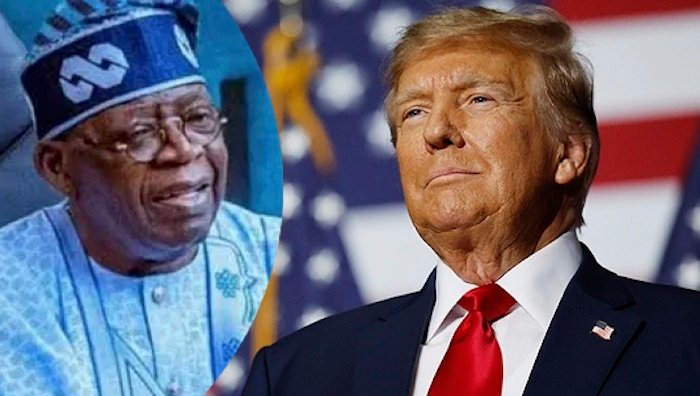THE United States government has clarified that its recent decision to shorten the duration and restrict the entry terms of most nonimmigrant visas for Nigerian citizens is not linked to Nigeria’s refusal to host deported asylum seekers, debunking widely circulated reports of diplomatic reprisal.
In a statement issued on Friday, the U.S. Mission in Nigeria reaffirmed that the policy is part of a broader global visa reciprocity review, which is being conducted across many countries based on what it described as technical and security benchmarks, and not political motives or country-specific issues.
“This reduction is not the result of any nation’s stance on third-country deportees, the introduction of e-visa policies, or affiliations with groups like BRICS,” the U.S. Embassy stated.
“We value our longstanding partnership with Nigeria and remain committed to working closely with both the Nigerian public and government officials.”
The clarification came days after the United States Department of State implemented a new visa regime that slashed the validity of most non-diplomatic Nigerian visas to three months and restricted them to single-entry status, as opposed to the longstanding multi-year, multiple-entry system.
The decision, which took effect on July 8, 2025, triggered an immediate backlash and speculative reports in Nigerian media, with some attributing the move to strained diplomatic relations stemming from Nigeria’s refusal to enter into a controversial third-country asylum deal proposed during the administration of former U.S. President Donald Trump.
Under such arrangements—previously negotiated with Rwanda and Djibouti—deportees or asylum seekers bound for Western countries would be temporarily relocated to a cooperating African nation while awaiting immigration processing decisions.
Nigeria reportedly declined to participate in such deals, citing domestic security concerns and population pressure, prompting fears that the new visa regime was a form of retaliation.
Responding to the U.S. action, Kimiebi Ebienfa, spokesperson for Nigeria’s Ministry of Foreign Affairs, voiced the government’s dissatisfaction with the visa restrictions, describing the move as “unfair and disproportionate”.
“While we acknowledge the U.S. government’s right to enforce its immigration laws, we believe this development lacks balance,” Ebienfa said.
“We urge Washington to reconsider this decision in the spirit of mutual respect and global cooperation.”
Ebienfa also underscored Nigeria’s strategic partnership with the United States across trade, security, and governance, saying such longstanding ties should not be undermined by unilateral policy shifts.
The U.S. insists that its latest changes stem from a “worldwide visa reciprocity review” initiated years ago to ensure that U.S. citizens receive comparable treatment in other countries.
This review has affected several nations beyond Nigeria, including Cameroon, Ethiopia, and Bangladesh, all of which have seen their visa terms adjusted in recent months. According to U.S. officials, the goal is reciprocity, not punishment.
“Visa validity decisions are made based on criteria such as security considerations, visa misuse patterns, and the treatment of U.S. citizens abroad,” the embassy noted.
“These reviews are conducted globally and are not specific to any one country.”
Despite the diplomatic clarifications, the policy change has sparked concern among frequent Nigerian travelers, including students, businesspeople, and diaspora families who now face increased costs, delays, and administrative hurdles due to shortened visa durations.
Many Nigerians had hoped that the reciprocity deal signed in 2020, which granted U.S. citizens five-year Nigerian visas, would lead to long-term visa parity, making travel between both countries easier. That policy remains in effect on Nigeria’s side.
Some commentators suggest that the U.S. e-visa option, which issues 90-day single-entry permits electronically, may have been misinterpreted by American officials as a reduction in privileges—further complicating perceptions of reciprocity.
Meanwhile, diplomatic engagements between Nigeria’s Ministry of Foreign Affairs and the U.S. Embassy in Abuja are said to be ongoing, as both sides work to prevent escalation and ensure continued mobility for citizens of both countries.
Analysts say that if unresolved, visa issues could affect investor confidence and undermine broader cooperation, particularly in sectors like oil, education, tech, and counterterrorism, where both countries share strategic interests.
“The U.S. is Nigeria’s key partner,” said a senior diplomatic source.
“It’s in both countries’ interest to keep the doors of travel and dialogue open.”
For now, the U.S. maintains that its door remains open to Nigerian travelers, provided the rules are respected. But it also expects that the principle of reciprocity will continue to guide future visa engagements.
The Nigerian government, on its part, says it will continue to engage diplomatically to ensure fairness, while encouraging Nigerians affected by the policy to remain calm and adapt to the evolving immigration landscape.







